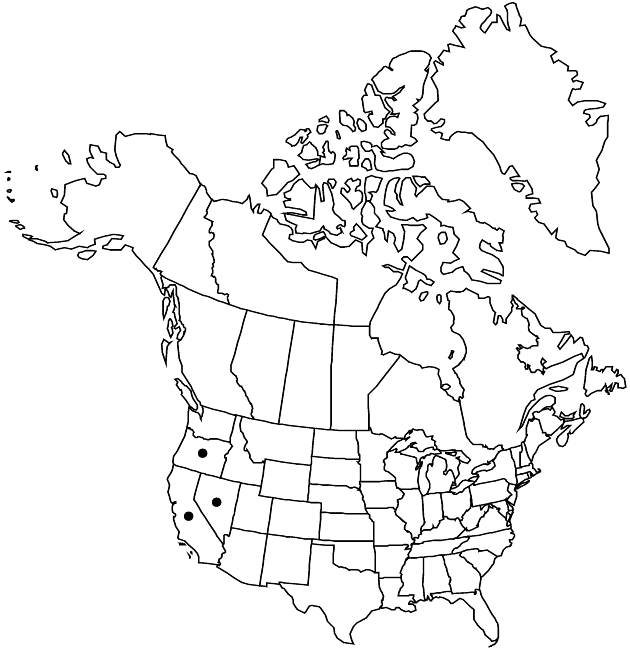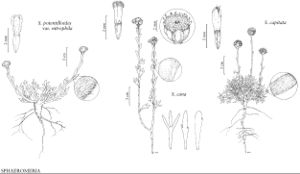Difference between revisions of "Sphaeromeria cana"
Muhlenbergia 1: 7. 1900.
Common names: Gray chickensage
Basionym: Tanacetum canum D. C. Eaton in S. Watson, Botany (Fortieth Parallel), 179, plate 19, figs. 8–14. 1871
FNA>Volume Importer |
FNA>Volume Importer |
||
| Line 53: | Line 53: | ||
|publication year=1900 | |publication year=1900 | ||
|special status= | |special status= | ||
| − | |source xml=https://jpend@bitbucket.org/aafc-mbb/fna-data-curation.git/src/ | + | |source xml=https://jpend@bitbucket.org/aafc-mbb/fna-data-curation.git/src/f50eec43f223ca0e34566be0b046453a0960e173/coarse_grained_fna_xml/V19-20-21/V19_839.xml |
|tribe=Asteraceae tribe Anthemideae | |tribe=Asteraceae tribe Anthemideae | ||
|genus=Sphaeromeria | |genus=Sphaeromeria | ||
Revision as of 21:21, 16 December 2019
Subshrubs (flowering twigs dying back each year), (5–)15–60 cm (aromatic). Stems erect, sericeous-canescent. Leaves mostly cauline; blades (linear or linear-oblanceolate, 10–40 mm) entire or pinnately or subpalmately lobed, faces ± sericeous. Heads usually 3–12 in compact, corymbiform cymes (1–3 cm across), sometimes 1–2. Involucres 2.5–4(–6) mm. Phyllaries 10–12, canescent. (Disc corollas ochroleucous, lobes villous.) Cypselae 1.8–1.9 mm (apices with irregular, thickened rims, faces glabrous or slightly gland-dotted). 2n = 18.
Phenology: Flowering Jul–Sep.
Habitat: Crevices in cliffs, dry rocky slopes
Elevation: 1800–4000 m
Distribution

Calif., Nev., Oreg.
Discussion
Sphaeromeria cana grows in western United States, with northern extension in the Steens Mountains of Oregon.
Selected References
None.
Lower Taxa
None.
